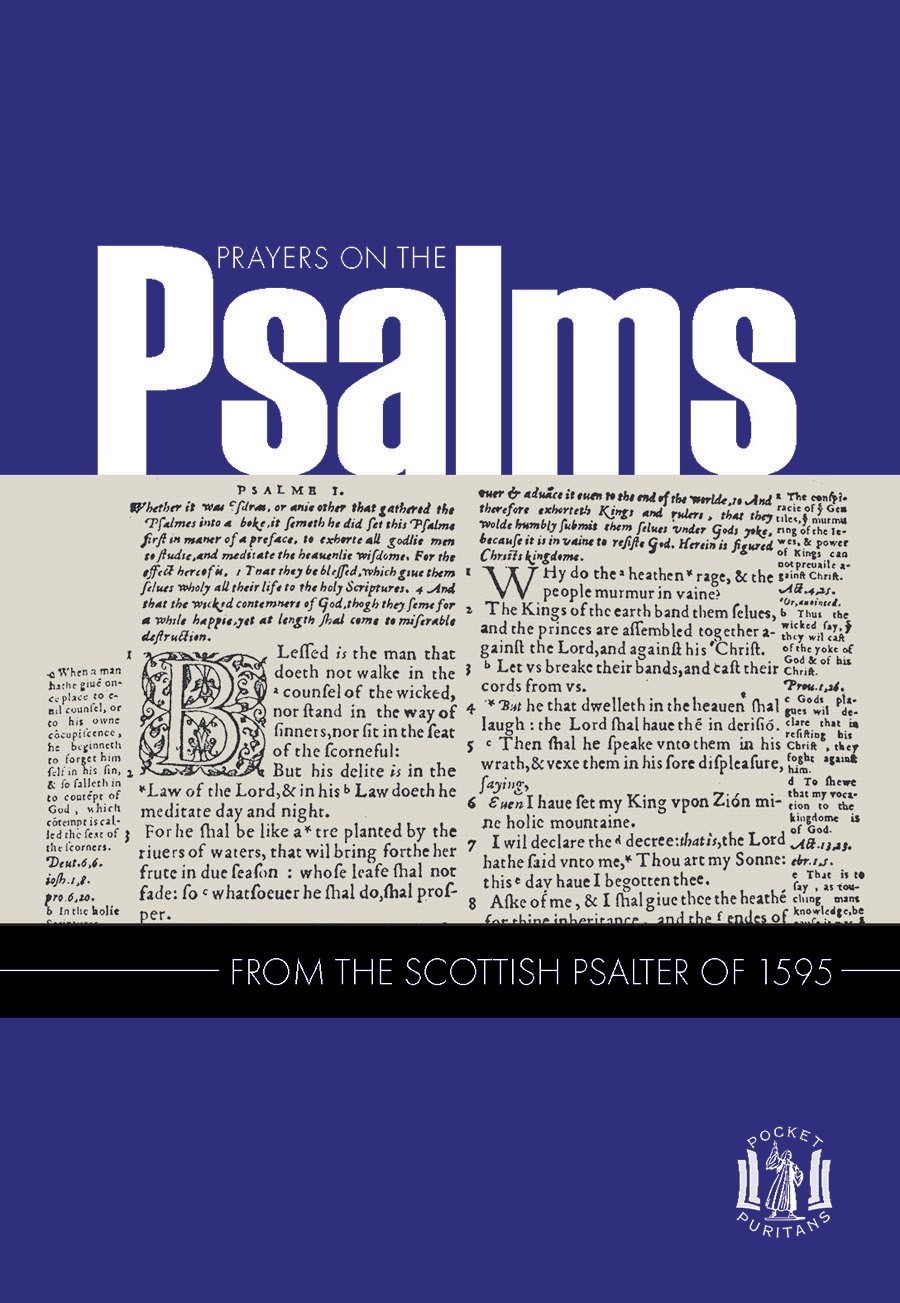Prayer
The following is a poem, written by William Cowper on the subject of prayer.
What various hindrances we meet,
In coming to the mercy seat!
Yet who that knows the worth of prayer,
But wishes to be often there?
Prayer makes the darkened cloud withdraw,
Prayer climbs the ladder Jacob saw,
Gives exercise to faith and love;
Brings every blessing from above.
Restraining prayer, we cease to fight;
Prayer makes the Christian’s armour bright;
And Satan trembles when he sees
The weakest saint upon his knees.
While Moses stood with arms spread wide,
Success was found on Israel’s side;
But when, through weariness, they failed,
That moment Amalek prevailed.
Have you no words? Ah! think again;
Words flow apace when you complain,
And fill your fellow-creature’s ear
With the sad tale of all your care.
Were half the breath thus vainly spent,
To heaven in supplication sent,
Your cheerful song would oftener be,
‘Hear what the Lord has done for me.’
Of Further Interest

Prayers on the Psalms
From the Scottish Psalter of 1595
Description
The following is a poem, written by William Cowper on the subject of prayer. What various hindrances we meet, In coming to the mercy seat! Yet who that knows the worth of prayer, But wishes to be often there? Prayer makes the darkened cloud withdraw, Prayer climbs the ladder Jacob saw, Gives exercise to faith […]
Latest Articles
On the Trail of the Covenanters February 12, 2026
The first two episodes of The Covenanter Story are now available. In an article that first appeared in the February edition of the Banner magazine, Joshua Kellard relates why the witness of the Scottish Covenanters is worthy of the earnest attention of evangelical Christians today. In late November of last year, on the hills above […]
A Martyr’s Last Letter to His Wife February 11, 2026
In the first video of The Covenanter Story, which releases tomorrow, we tell the story of James Guthrie, the first great martyr of the Covenant. On June 1, the day he was executed for high treason, he coursed the following farewell letter to his wife: “My heart,— Being within a few hours to lay down […]
